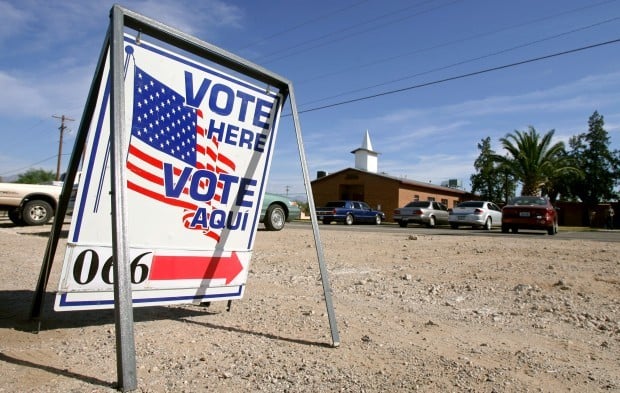Federal officials will be watching polling Tuesday in five Arizona counties, including Pima County.
But no one is saying exactly how the Department of Justice selected those five, or exactly what form that monitoring will take.
In a statement Monday, the department said it will “monitor compliance with federal voting rights laws’’ in 64 jurisdictions in 24 states. In Arizona, that includes Maricopa, Navajo, Pima, Pinal and Yavapai counties.
Those monitors will include personnel not only from DOJ’s civil rights division but also offices of the U.S. Attorney for Arizona.
The concept is not new.
“Since the passage of the Voting Rights Act in 1965, the Civil Rights Division has regularly monitored elections in the field in jurisdictions around the country to protect the rights of voters,’’ the department said in its news release.
It doesn’t mean other counties will escape scrutiny.
“The Civil Rights Division will also take complaints from the public nationwide regarding possible violations of the federal voting rights laws through its call center,’’ the department said. Complaints can be filed with the Department of Justice through its toll-free line at 800-253-3931 or on its website of https://civilrights.justice.gov.
The release also says anyone who sees disruptions at polling places should immediately report that to local election officials, including those working at the site. And people should call 911 over allegations of violence, threats of violence or intimidation at polling places.
Federal officials have said they are charged with enforcing not just the Voting Rights Act but also the Help America Vote Act, the National Voter Registration Act and the Americans with Disabilities Act.
They make decisions each election cycle depending on a particular decision or election about issues such as making sure voters have ballot access under their primary language or ensuring those with disabilities can cast ballots.
Questions about discrimination and voter intimidation are also factors, the department has said.
There is apparent basis for concern at least in Maricopa County, including activities this year by a group calling itself Clean Elections USA to monitor ballot drop boxes, in which several members were armed or wearing tactical gear.
Most of the group’s activities were barred last week by U.S. District Court Judge Michael Liburdi. While the judge did not forbid people from monitoring — from at least 75 feet away — he said they cannot take videos of would-be voters within that 75-foot perimeter and said anyone who is visibly armed or in tactical gear must remain at least 250 feet from the boxes.
There also is history to consider in Maricopa County. Supporters of then-President Donald Trump protested at the county’s election offices for days after Democrat Joe Biden was declared the winner in Maricopa and in Arizona. County officials have now constructed fences and vehicle barriers around the building.
Several current candidates continue to charge there was fraud in the 2020 election, with Senate President Karen Fann, R-Prescott, saying the “audit’’ she ordered of the Maricopa County returns is ongoing despite the fact a hand count confirmed Biden’s victory — and by a slightly larger margin than the official results.
Elsewhere, separate groups had announced plans to monitor drop boxes in Yavapai County. But representatives of both groups told Liburdi last week they were not pursing that action.
There have been no such activities in Pima County. But the state’s second-most-populous county drew attention after Trump claimed voter fraud there in the 2020 election, allegations that were refuted after an investigation by the county attorney.
Monitoring by the Department of Justice is not new. But it is a marked increase from what the department did two years earlier when it decided to keep watch on 44 jurisdictions in 18 states, including just Coconino, Maricopa and Yavapai counties in Arizona.
As part of a project called Democracy Day, Stacker conducted research and spoke with experts to better understand why people vote.





